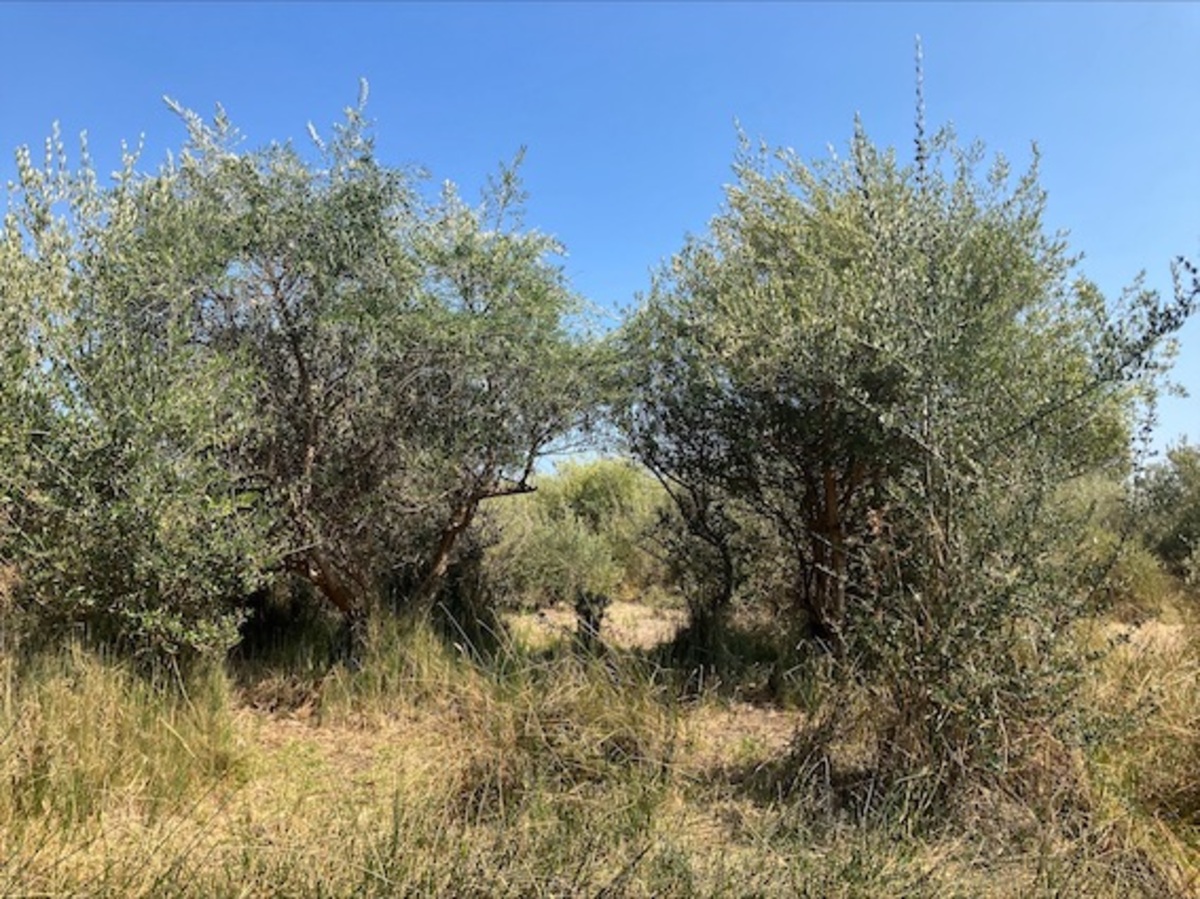National effort on feral olives led locally
Staff Reporters
03 April 2025, 8:00 PM
 Feral olives have been nominated as a Weed of National Significance due to their invasiveness in native bushland, roadsides and grazing land. They also readily establish on hillsides, making them a serious fire hazard.
Feral olives have been nominated as a Weed of National Significance due to their invasiveness in native bushland, roadsides and grazing land. They also readily establish on hillsides, making them a serious fire hazard.A significant step has been taken in the fight against feral olives, with both European and African varieties now under consideration for inclusion as a Weed of National Significance (WoNS).
This important nomination, led by Landscapes Hills and Fleurieu, has received overwhelming support from a diverse range of stakeholders, including four state agencies, four landscape boards, six councils and 15 environmental NGOs and community groups.
Susan Ivory, Stewardship Team Leader at Landscapes Hills and Fleurieu, is pleased to see feral olives under consideration as a WoNS and thanked the community for its support.
“Our nomination reflects the collective effort to address a growing environmental issue. Feral olives threaten biodiversity, agricultural productivity, and fire safety, it’s critical that we take action to control their spread.
“We are also incredibly grateful for the many letters of support from our partners and stakeholders, which have shown a unified commitment to tackling this invasive species.”
There are currently 32 weed species recognised as WoNS by Australian governments, chosen for their invasiveness, potential for widespread distribution, and impacts on the environment, economy, and social well-being.
Feral olives have become a significant environmental problem in rural areas across South Australia, including the Hills and Fleurieu. While the weed is already declared in South
Australia, their impact is also felt in the eastern states, with both African and European olives causing concern.
“These invasive plants are capable of invading intact bushland and poorly managed
grazing land. They are highly adaptable and can thrive on steep hillsides, exacerbating the risk of wildfires due to their high oil content,” Ms Ivory says.
“The management of feral olives is particularly challenging, and their presence is a growing concern across multiple southern states.”
The process will ultimately identify approximately eight additional significant weeds to be included in the National Established Weed Priorities list, which is expected to be published by late 2025.
“We’re excited about the potential impact of national coordination in addressing this issue. This process will not only raise the profile of feral olives but will also support the development of best practice management guides, enhance research efforts, and bridge critical knowledge gaps,” she says.
The outcome of the nomination will be known later in the year.
In the meantime, landholders trying to tackle feral olives can refer to the Landscapes Hills and Fleurieu website for resources and videos on how to best control them.
Landscapes Hills and Fleurieu will also hold a workshop in Normanville on Friday 11 April to help new and experienced landholders learn simple and effective techniques to control feral olives on their properties. Find out more online.